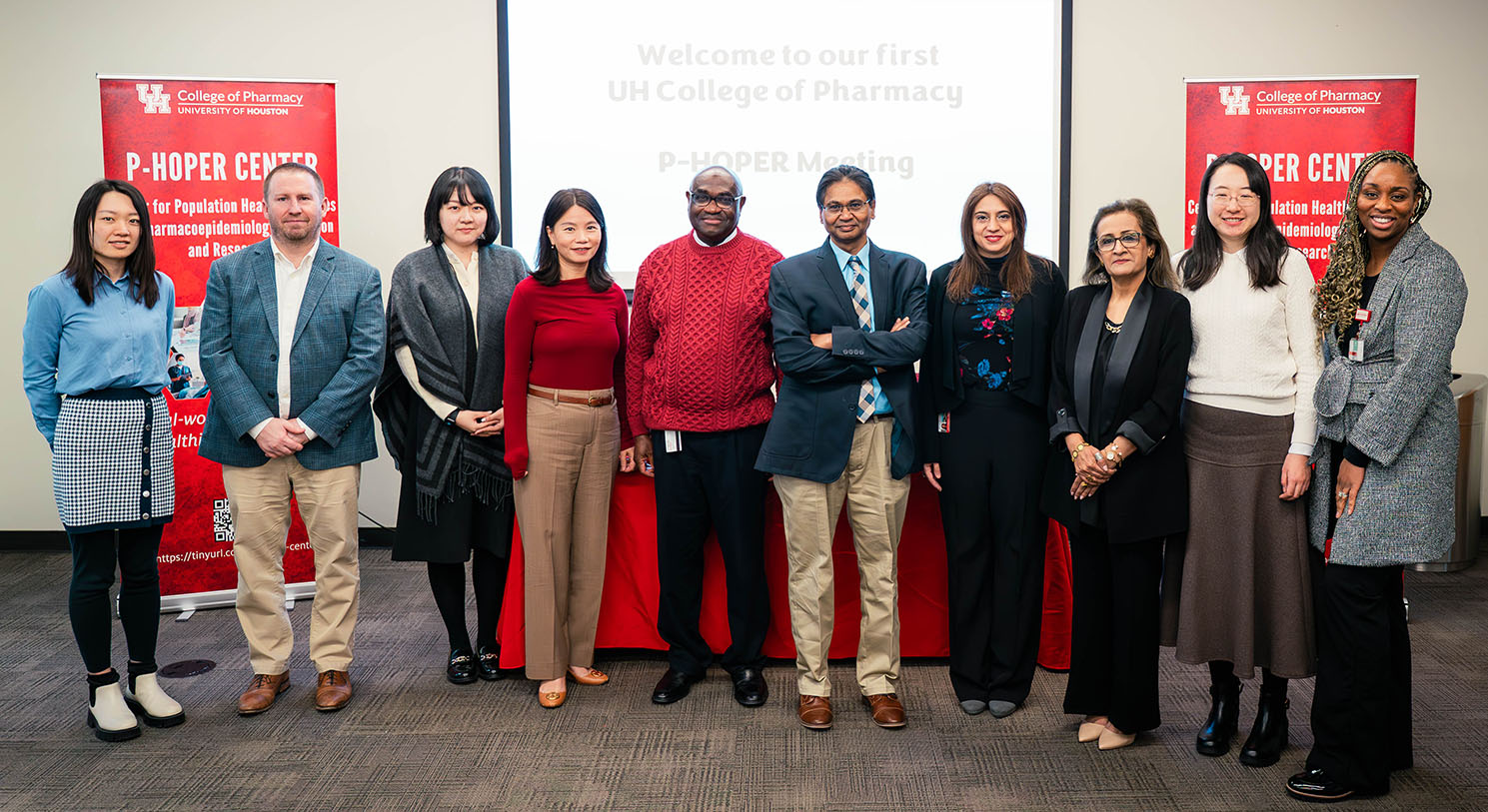About Us
The Center for Population Health Outcomes and Pharmacoepidemiology Education and Research (P-HOPER Center) will be the first in the nation dedicated to research and education in the area of population health outcomes and pharmacoepidemiology. The center is uniquely positioned to strengthen the partnership between public health and pharmacy, help remove the barriers to collaborations, and promote the integration of population-based pharmaceuticals outcomes assessment into community health needs assessments, disease surveillance, and monitoring of health outcomes. These synergic areas are of national importance as many of the population health goals require pharmaceutical products such as vaccines, medicinal agents, and others for the prevention and treatment of diseases.
The P-HOPER Center team will collaborate on projects both within the center and through an extensive network of community centers and patient care facilities in the Texas Medical Center and across the state to develop solutions to improve population health outcomes.














